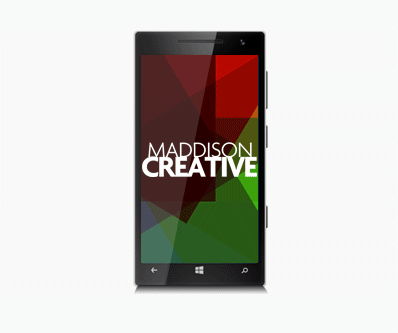Winning in the marketplace with great web design and development
Web designers vs Web Developers
You may have heard the terms 'web designer' and 'web developer' and wondered what the difference is, if there's a difference at all. Web design and web development are two different disciplines: A web designer will typically deal with the 'front end', which includes the visual aspect of a website, the HTML and the user experience, or UX.
The web developer will be responsible for the 'back-end' which means they will write server-side scripts that result in any functionality the wbsite might have. There is overlap though, and often a designer will be capable of developing and the developer will be happy designing.
Why should my business worry about having a website?
There is an ever increasing reliance on websites globally, especially in the UK where over 87% of adults use the internet. Around 99% of adults aged between the ages of 16 and 24 are online, and as they get older, this internet savvy audience will replace the current crop of more traditionally internet-cautious middle-aged and elderly people who can find the technology confusing, having been brought up prior to its existence.
People now turn to the internet before exploring any other channel for a wide range of needs, including shopping, leisure activities, watching live streamed media, participation in online communities information gathering and gaming. Largely because of its convenience, availability, cost, versatility and adaptability.
You cannot get this kind of global exposure with any other kind of media. And if you're looking to target people in your area and surrounding areas (any area in fact!) you can target them using tailored advertising campaigns. If you marry this with Google's (other search engines are available) search algorithms, you can ensuring that only people who are interested in what you have to say/sell visit your site, so you don't waste their time, and they don't waste yours. And with great interactive design and functionality, once they're there, you can ensure they keep coming back!
What are the benefits of advertising my business dynamically online via a website?
One of the great features of promoting your business via the web is that you can add to your site almost instantaneously. You could think of an idea for a promotion one lunchtime and but close of business it can be live, with little or no lead time and no costly printing to contend with.
Unlike printed media and traditional advertising methods, if you publish your website and you decide that your offer is no longer available, your prices need to change or you want to change your messaging, you can do it quickly, easily, and more importantly very cost effectively 'on-the-fly', allowing you to be as reactive and as responsive to market forces as you wish.
Similarly, if you have something time-sensitive you wish to communicate to your customer base, you can add it to your site where it can be made live immediately, and once it's no longer needed it can be taken down just as quickly.
You no longer need to scrap boxes and boxes of flyers, or have expensive TV or radio commercials remade. You simply contact your web manager/designer, let them know what the update is, and they will update hassle free. Should you have opted for a CMS (Content management system) website where you have the ability to update the content yourself, then it's even easier! You simply log in to the admin area, navigate to the page in question, edit your text, hit save and you're done!
What is the difference between 'the internet' and 'the world wide web'?
The Web, or World Wide Web (www) is a series of linked (by hyperlinks) documents that can be accessed via the internet.
The web and internet are often confused but are actually two different things - the web is the network of documents that is hosted on the internet, which is a giant network of computers that can communicate with each other. The web as we know it came about in the late eighties, an invention of British physicist Tim Berners-Lee, then an employee of Cern in Switzerland. The first browser was made available to the public a couple of years later, allowing anyone in the world to access 'The Web'.
To access the web and all of its bounty, you need a device capable of running a browser, a browser itself, such as Google Chrome, Mozilla Firefox or Safari and an internet connection. To view a website page, someone with all of the above needs to open their browser and type in the 'domain name' or URL (uniform resource locator) into the 'address bar' to go directly to that website, or if they don't know the URL, or to browse a number of websites relating to what they're looking for, they would navigate to a 'Search Engine', Google or Bing for example.
Search engines are programs that continually index what's available on the web, using small programs knows as 'spiders' or 'robots' to scour the web for any files they can find, reporting back on their content and other information contained in those files (webpages, images & other documents) and the search engine then records that information and uses it to categorise websites, ranking them on their relevance and quality in order to decide which sites to show you when you search for any given 'search term'.
Originally, webpages were limited in what they could do, and were simply a way of sharing information with limited interactivity - a far cry from today where they are fully immersive and an integral part of each of our lives, to the point where internet access is now considered a basic human right!
More answers to web design questions...
Where to next?
Web Design | Online Advertising | Interactive Design | Email Design | Graphic Design | Video & Animation | Brand & Creative | Training | Design Consultancy

